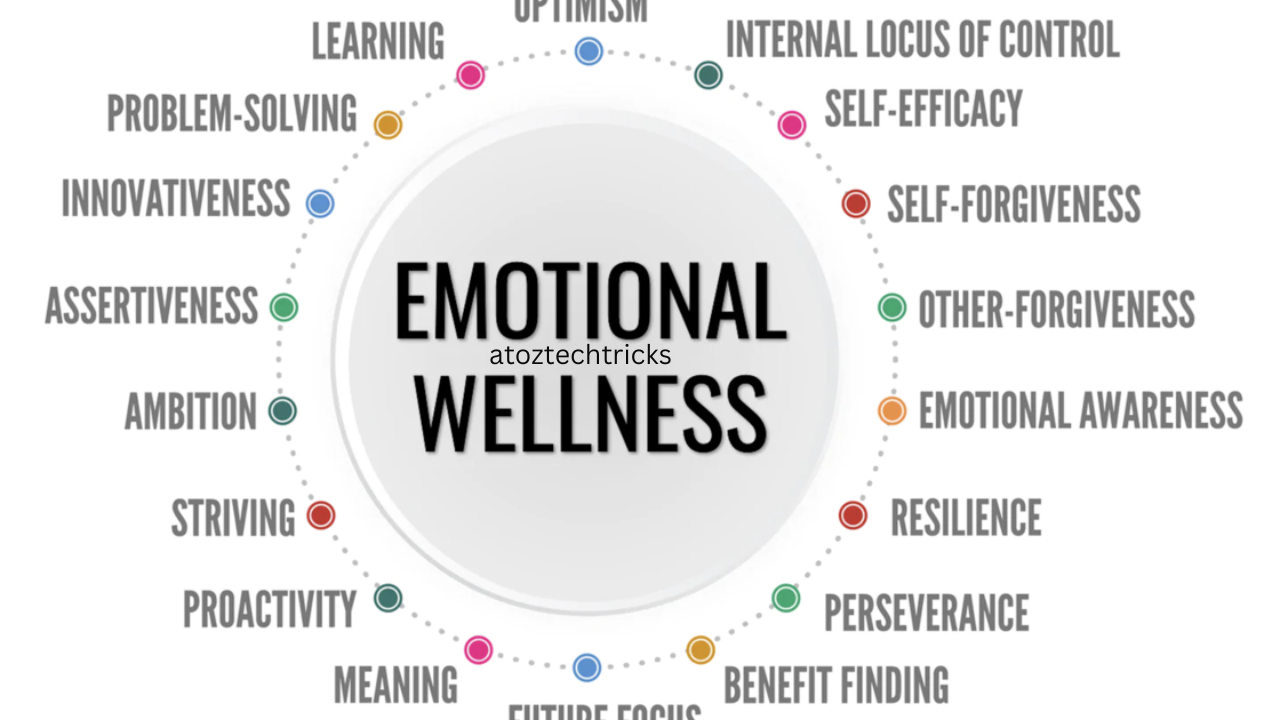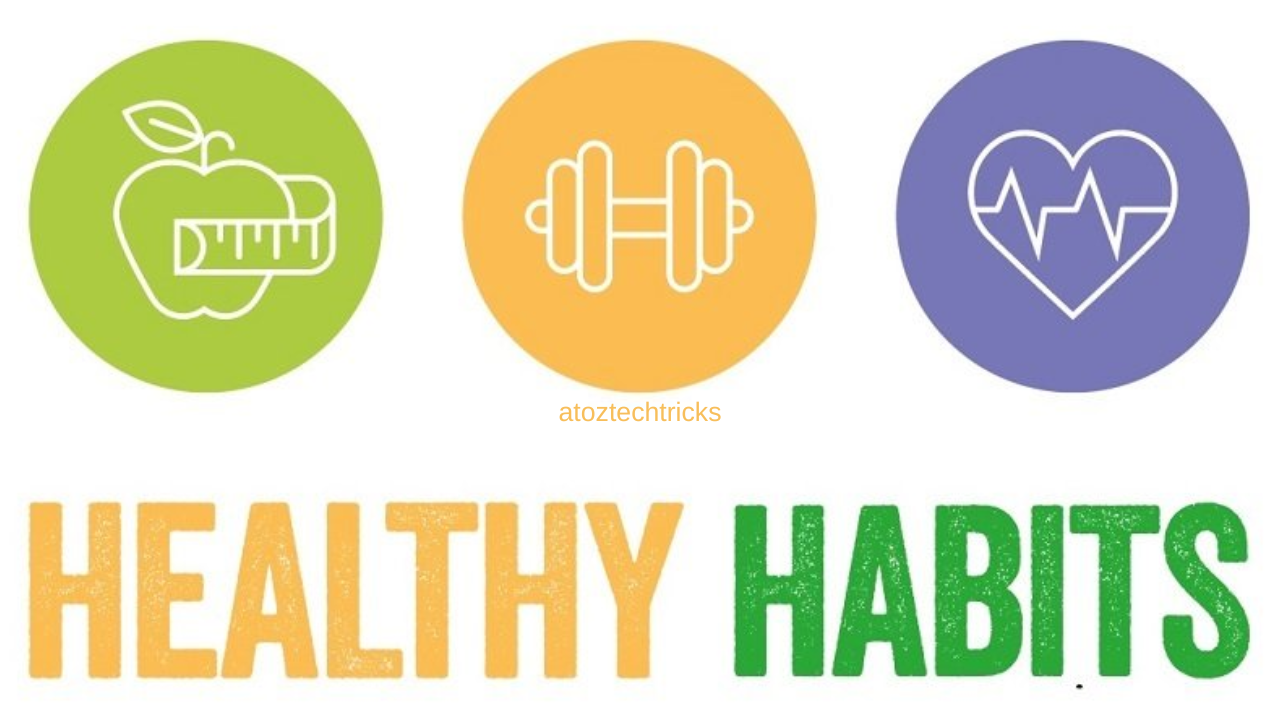Emotional Well-Being: A Comprehensive Guide to Nurturing Mental Health
Emotional well-being is a critical aspect of overall health, encompassing our ability to manage emotions, cope with stress, and maintain a positive outlook on life. In a world that increasingly recognizes the importance of mental health, understanding and nurturing emotional well-being has become essential. This article delves into the concept of emotional well-being, exploring its significance, factors influencing it, and strategies to enhance and maintain it.
Understanding Emotional Well-Being
What is Emotional Well-Being?
Emotional well-being refers to the ability to recognize, understand, and manage our emotions effectively. It involves being aware of our feelings, having the capacity to navigate through life’s challenges, and maintaining a sense of balance and positivity. Unlike fleeting moments of happiness, emotional well-being is a long-term state that influences how we perceive and interact with the world around us.
Importance of Emotional Well-Being
Emotional well-being is integral to overall health. It impacts our thoughts, behaviours, and relationships. When we have a high level of emotional well-being, we are more resilient, better able to handle stress, and more likely to engage in healthy behaviors. Conversely, poor emotional well-being can lead to mental health issues such as anxiety, depression, and chronic stress, which can affect physical health, productivity, and quality of life.
Identifying and Addressing Negative Emotions: A Comprehensive Guide
Factors Influencing Emotional Well-Being
1. Biological Factors
Biological factors, including genetics, brain chemistry, and hormonal balance, play a significant role in emotional well-being. For example, imbalances in neurotransmitters like serotonin and dopamine are associated with mood disorders such as depression and anxiety. While we cannot control our genetic makeup, understanding these biological influences can help in managing emotional well-being through medical and therapeutic interventions.
2. Psychological Factors
Psychological factors, including personality traits, coping mechanisms, and past experiences, deeply influence emotional well-being. Individuals with a positive self-concept, effective coping skills, and a history of healthy emotional regulation are more likely to maintain emotional stability. Conversely, those with low self-esteem, poor coping mechanisms, or traumatic experiences may struggle with emotional well-being.
3. Social Factors
Human beings are inherently social creatures, and our interactions with others significantly impact our emotional well-being. Supportive relationships, social networks, and community involvement contribute to a sense of belonging and emotional stability. On the other hand, social isolation, toxic relationships, and lack of support can lead to feelings of loneliness, anxiety, and depression.
4. Environmental Factors
The environment in which we live, work, and play also affects our emotional well-being. Factors such as living conditions, access to nature, and exposure to pollution or noise can influence our mental state. For instance, individuals living in peaceful, green environments tend to report higher levels of emotional well-being compared to those in crowded, noisy urban areas.
5. Cultural and Societal Influences
Cultural norms, societal expectations, and media portrayals of success, beauty, and happiness can shape our emotional well-being. Societies that value individualism may foster competition and stress, while collectivist cultures emphasize community and support. Understanding these cultural and societal influences is crucial in managing emotional well-being in a globalized world.

The Impact of Emotional Well-Being on Life
1. Physical Health
There is a strong connection between emotional well-being and physical health. Chronic stress, anxiety, and depression can weaken the immune system, making individuals more susceptible to illnesses. Moreover, emotional distress can lead to unhealthy behaviors such as overeating, substance abuse, or neglect of physical activity, further compromising physical health.
2. Work and Productivity
Emotional well-being significantly impacts productivity and job satisfaction. Individuals with high emotional well-being are more motivated, focused, and capable of handling work-related stress. They tend to have better relationships with colleagues and are more likely to contribute positively to their workplace. On the other hand, poor emotional well-being can lead to burnout, absenteeism, and reduced performance.
3. Relationships
Healthy relationships are both a contributor to and a result of emotional well-being. When individuals are emotionally stable, they are better able to communicate effectively, resolve conflicts, and build strong, supportive relationships. Conversely, emotional instability can strain relationships, leading to misunderstandings, resentment, and, ultimately, isolation.
4. Personal Growth
Emotional well-being fosters personal growth and self-improvement. It enables individuals to set and achieve goals, embrace change, and develop resilience in the face of adversity. With a strong foundation of emotional well-being, people are more likely to pursue lifelong learning, self-discovery, and fulfillment.
Building Resilience and Emotional Intelligence: A Comprehensive Guide
Strategies to Enhance Emotional Well-Being
1. Mindfulness and Meditation
Mindfulness and meditation are powerful tools for enhancing emotional well-being. By practicing mindfulness, individuals can develop greater awareness of their thoughts, emotions, and physical sensations, allowing them to respond to situations with clarity and calmness. Regular meditation has been shown to reduce stress, improve mood, and increase emotional resilience.
2. Physical Activity
Physical activity is not only beneficial for physical health but also for emotional well-being. Exercise releases endorphins, which are natural mood lifters. Regular physical activity can reduce symptoms of anxiety and depression, improve self-esteem, and promote better sleep. Activities such as yoga, walking, and dancing can be particularly effective in enhancing emotional well-being.
3. Healthy Diet
Nutrition plays a crucial role in emotional well-being. A balanced diet rich in fruits, vegetables, whole grains, and lean proteins can improve mood and energy levels. Conversely, diets high in processed foods, sugar, and unhealthy fats can contribute to mood swings and emotional instability. Incorporating foods rich in omega-3 fatty acids, such as fish, and antioxidants, like berries, can support brain health and emotional well-being.
4. Sleep Hygiene
Adequate and quality sleep is essential for emotional well-being. Poor sleep can lead to irritability, difficulty concentrating, and increased vulnerability to stress. Establishing a regular sleep routine, creating a relaxing sleep environment, and avoiding stimulants like caffeine before bed can improve sleep quality and, consequently, emotional health.
5. Social Connections
Building and maintaining strong social connections is vital for emotional well-being. Engaging in meaningful relationships, whether with family, friends, or community groups, provides emotional support, reduces feelings of loneliness, and fosters a sense of belonging. Regular social interactions can also provide opportunities for sharing experiences, gaining new perspectives, and developing empathy.
6. Emotional Awareness and Expression
Being aware of and expressing emotions in a healthy way is crucial for emotional well-being. This involves recognizing and acknowledging feelings, whether positive or negative, and finding appropriate outlets for expression. Journaling, talking to a trusted friend, or seeking professional therapy are effective ways to process emotions and prevent them from becoming overwhelming.
7. Professional Support
Seeking professional support when needed is an important aspect of maintaining emotional well-being. Therapists, counselors, and mental health professionals can provide guidance, support, and tools for managing emotional challenges. Whether dealing with trauma, anxiety, depression, or simply seeking personal growth, professional support can be invaluable.
8. Developing Resilience
Resilience is the ability to bounce back from adversity, and it is a key component of emotional well-being. Developing resilience involves cultivating a positive mindset, learning from experiences, and building coping strategies. Practices such as cognitive-behavioral techniques, setting realistic goals, and maintaining a hopeful outlook can enhance resilience and emotional well-being.
9. Engaging in Hobbies and Interests
Pursuing hobbies and interests that bring joy and fulfillment can greatly enhance emotional well-being. Whether it’s painting, gardening, reading, or playing a musical instrument, engaging in activities that are personally meaningful can provide a sense of accomplishment, reduce stress, and promote relaxation.
10. Practicing Gratitude
Gratitude is a powerful emotion that can improve emotional well-being. Regularly reflecting on the things one is thankful for can shift focus from negative to positive aspects of life, fostering a more optimistic outlook. Keeping a gratitude journal, expressing thanks to others, and savoring positive experiences are simple yet effective ways to cultivate gratitude and enhance emotional well-being.

Challenges to Emotional Well-Being and How to Overcome Them
1. Stress and Overwhelm
Stress is a common challenge to emotional well-being. Chronic stress can lead to emotional exhaustion, anxiety, and depression. To overcome stress, it’s important to identify stressors and develop effective coping strategies. Time management, relaxation techniques, and seeking support from others can help manage stress and prevent it from overwhelming emotional well-being.
2. Negative Thinking Patterns
Negative thinking patterns, such as catastrophizing or overgeneralizing, can undermine emotional well-being. These patterns often lead to unnecessary worry, fear, and sadness. Cognitive-behavioral techniques can help challenge and reframe negative thoughts, replacing them with more balanced and positive perspectives.
3. Social Isolation
Social isolation can have a profound impact on emotional well-being, leading to feelings of loneliness, depression, and anxiety. To overcome social isolation, it’s important to actively seek out social interactions and build a support network. Joining clubs, volunteering, or simply reaching out to friends and family can help combat loneliness and enhance emotional well-being.
4. Life Transitions
Life transitions, such as moving, changing jobs, or experiencing loss, can be stressful and emotionally challenging. During these times, it’s important to practice self-care, seek support, and allow oneself to process emotions. Embracing change as an opportunity for growth rather than a threat can help maintain emotional well-being during transitions.
5. Unresolved Trauma
Unresolved trauma can significantly impact emotional well-being, leading to symptoms of post-traumatic stress, anxiety, and depression. It’s crucial to seek professional help in processing and healing from trauma. Therapies such as cognitive-behavioral therapy (CBT), eye movement desensitization and reprocessing (EMDR), and trauma-focused counseling can be effective in addressing trauma and restoring emotional well-being.
Self-Care Practices for Emotional Well-Being: A Comprehensive Guide
The Role of Emotional Intelligence in Emotional Well-Being
1. What is Emotional Intelligence?
Emotional intelligence (EI) refers to the ability to recognize, understand, manage, and utilize emotions effectively in ourselves and others. It encompasses skills such as emotional awareness, empathy, self-regulation, and social skills. Individuals with high emotional intelligence are better equipped to navigate social complexities, make informed decisions, and maintain emotional balance.
2. Components of Emotional Intelligence
Emotional intelligence consists of several key components:
- Self-Awareness: The ability to recognize and understand one’s own emotions, strengths, weaknesses, and values. Self-aware individuals are more likely to be in tune with their feelings and how these emotions influence their thoughts and behavior.
- Self-Regulation: The ability to manage and control one’s emotions, particularly in stressful or challenging situations. Self-regulation involves staying calm, thinking before acting, and maintaining composure even when faced with adversity.
- Motivation: An intrinsic desire to achieve goals and maintain a positive attitude, even in the face of setbacks. Motivated individuals are driven by personal values and a sense of purpose, which enhances emotional resilience.
- Empathy: The capacity to understand and share the feelings of others. Empathetic individuals are attuned to the emotions of those around them and can respond with compassion and understanding, which strengthens relationships.
- Social Skills: The ability to interact effectively with others, build relationships, and navigate social networks. Strong social skills involve communication, conflict resolution, and the ability to inspire and lead others.
3. How Emotional Intelligence Enhances Emotional Well-Being
Emotional intelligence plays a crucial role in emotional well-being by equipping individuals with the tools needed to manage emotions effectively. Here’s how:
- Improved Relationships: High emotional intelligence allows individuals to communicate more effectively, resolve conflicts, and build stronger, more supportive relationships. Positive relationships are a cornerstone of emotional well-being, providing a sense of belonging and emotional support.
- Better Stress Management: Emotionally intelligent individuals are better at recognizing stressors and implementing coping strategies. By managing stress effectively, they can prevent emotional exhaustion and maintain a balanced emotional state.
- Enhanced Decision-Making: Emotional intelligence improves decision-making by allowing individuals to consider both the emotional and rational aspects of a situation. This balanced approach leads to more informed and thoughtful decisions, reducing the likelihood of regret and emotional distress.
- Greater Resilience: Emotional intelligence fosters resilience by helping individuals adapt to change, recover from setbacks, and maintain a positive outlook. Resilience is essential for overcoming life’s challenges and maintaining long-term emotional well-being.
4. Developing Emotional Intelligence
Emotional intelligence is not a fixed trait; it can be developed and strengthened over time. Here are some strategies to enhance emotional intelligence:
- Practice Self-Reflection: Regularly reflect on your emotions, thoughts, and behaviors. Consider how they influence your interactions with others and how you can improve your emotional responses.
- Cultivate Empathy: Make a conscious effort to understand the perspectives and emotions of others. Listen actively, ask questions, and try to see situations from their point of view.
- Manage Emotions Effectively: Develop techniques for managing emotions, such as deep breathing, mindfulness, or taking a moment to pause before reacting. This helps prevent emotional outbursts and promotes calm, rational responses.
- Improve Social Skills: Work on communication skills, such as active listening, clear expression of thoughts, and nonverbal communication. Building strong social connections can enhance both emotional intelligence and well-being.
- Seek Feedback: Ask for feedback from trusted friends, family, or colleagues about how you manage emotions and interact with others. Constructive feedback can provide valuable insights into areas for improvement.

The Connection Between Emotional Well-Being and Mental Health
1. Emotional Well-Being as a Component of Mental Health
Emotional well-being is a fundamental aspect of mental health, which encompasses emotional, psychological, and social well-being. Good mental health involves not only the absence of mental disorders but also the presence of positive emotional well-being. When individuals are emotionally well, they are more likely to experience mental clarity, resilience, and a sense of purpose.
2. Mental Health Disorders and Emotional Well-Being
Mental health disorders, such as depression, anxiety, and bipolar disorder, can significantly impact emotional well-being. These conditions often lead to emotional instability, difficulty regulating emotions, and challenges in maintaining positive relationships. Conversely, poor emotional well-being can contribute to the development or worsening of mental health disorders, creating a cyclical relationship.
3. Promoting Mental Health Through Emotional Well-Being
Promoting emotional well-being is an essential part of maintaining good mental health. Here are some ways to enhance mental health through emotional well-being:
- Early Intervention: Recognizing the signs of emotional distress early and seeking help can prevent the progression of mental health disorders. Early intervention through therapy, counseling, or support groups can help individuals manage their emotions and maintain mental health.
- Holistic Approaches: Integrating emotional well-being practices, such as mindfulness, physical activity, and social connection, into daily life can provide a holistic approach to mental health. These practices not only improve emotional well-being but also support overall mental health.
- Reducing Stigma: Addressing the stigma associated with mental health issues can encourage individuals to seek help and openly discuss their emotional well-being. Reducing stigma creates a more supportive environment where emotional and mental health are prioritized.
- Education and Awareness: Raising awareness about the importance of emotional well-being and its impact on mental health can empower individuals to take proactive steps in managing their emotional health. Education programs, workshops, and public campaigns can promote understanding and action.
Emotional Well-Being Across Different Life Stages
1. Emotional Well-Being in Childhood
Childhood is a critical period for the development of emotional well-being. During these formative years, children learn to identify, express, and manage their emotions. Positive emotional well-being in childhood sets the foundation for mental health and well-being throughout life. Parents, caregivers, and educators play a crucial role in nurturing children’s emotional development by providing a supportive environment, modeling healthy emotional behaviors, and teaching coping skills.
2. Emotional Well-Being in Adolescence
Adolescence is a time of significant emotional and psychological change. Teenagers experience a range of emotions as they navigate identity formation, peer relationships, and academic pressures. Emotional well-being during adolescence is essential for building resilience and coping with the challenges of this life stage. Encouraging open communication, providing emotional support, and promoting self-esteem can help adolescents maintain emotional well-being.
3. Emotional Well-Being in Adulthood
Adulthood brings a host of responsibilities, including career, relationships, and family life. Balancing these demands while maintaining emotional well-being can be challenging. Adults benefit from developing strong coping mechanisms, maintaining social connections, and prioritizing self-care. Managing stress, setting realistic goals, and seeking support when needed are key strategies for sustaining emotional well-being in adulthood.
4. Emotional Well-Being in Older Adults
Emotional well-being in older adults is influenced by factors such as retirement, health issues, and changes in social networks. Maintaining a sense of purpose, staying physically active, and engaging in social activities are important for emotional well-being in later life. Older adults may also face challenges such as grief, loneliness, and anxiety about aging. Support from family, friends, and community resources can help older adults navigate these challenges and maintain emotional well-being.
Impact of Emotional Well-Being on Relationships: A Comprehensive Exploration
The Role of Society and Community in Emotional Well-Being
1. Creating Supportive Environments
Society and community play a vital role in fostering emotional well-being. Creating supportive environments that promote mental health and emotional well-being is essential. This includes workplaces that prioritize employee well-being, schools that support students’ emotional development, and communities that offer social support and mental health resources.
2. Promoting Social Inclusion
Social inclusion is a key factor in emotional well-being. Communities that promote inclusivity and diversity help individuals feel valued and connected. Social inclusion reduces feelings of isolation and promotes a sense of belonging, which is essential for emotional well-being.
3. Access to Mental Health Services
Access to mental health services is crucial for supporting emotional well-being. Societies that provide affordable and accessible mental health care enable individuals to seek help when needed, preventing emotional distress from escalating into more serious mental health issues.
4. Public Awareness Campaigns
Public awareness campaigns that highlight the importance of emotional well-being and mental health can reduce stigma and encourage individuals to prioritize their emotional health. These campaigns can also provide information on available resources and strategies for maintaining emotional well-being.
Emotional well-being is a vital component of overall health and quality of life. It influences how we think, feel, and behave, affecting our relationships, productivity, and physical health. By understanding the factors that influence emotional well-being and adopting strategies to enhance it, we can build resilience, cope with life’s challenges, and lead more fulfilling lives. Emotional intelligence, mental health, and societal support all play crucial roles in nurturing emotional well-being. By prioritizing emotional well-being across all stages of life, we can create a healthier, happier, and more connected world.




Post Comment